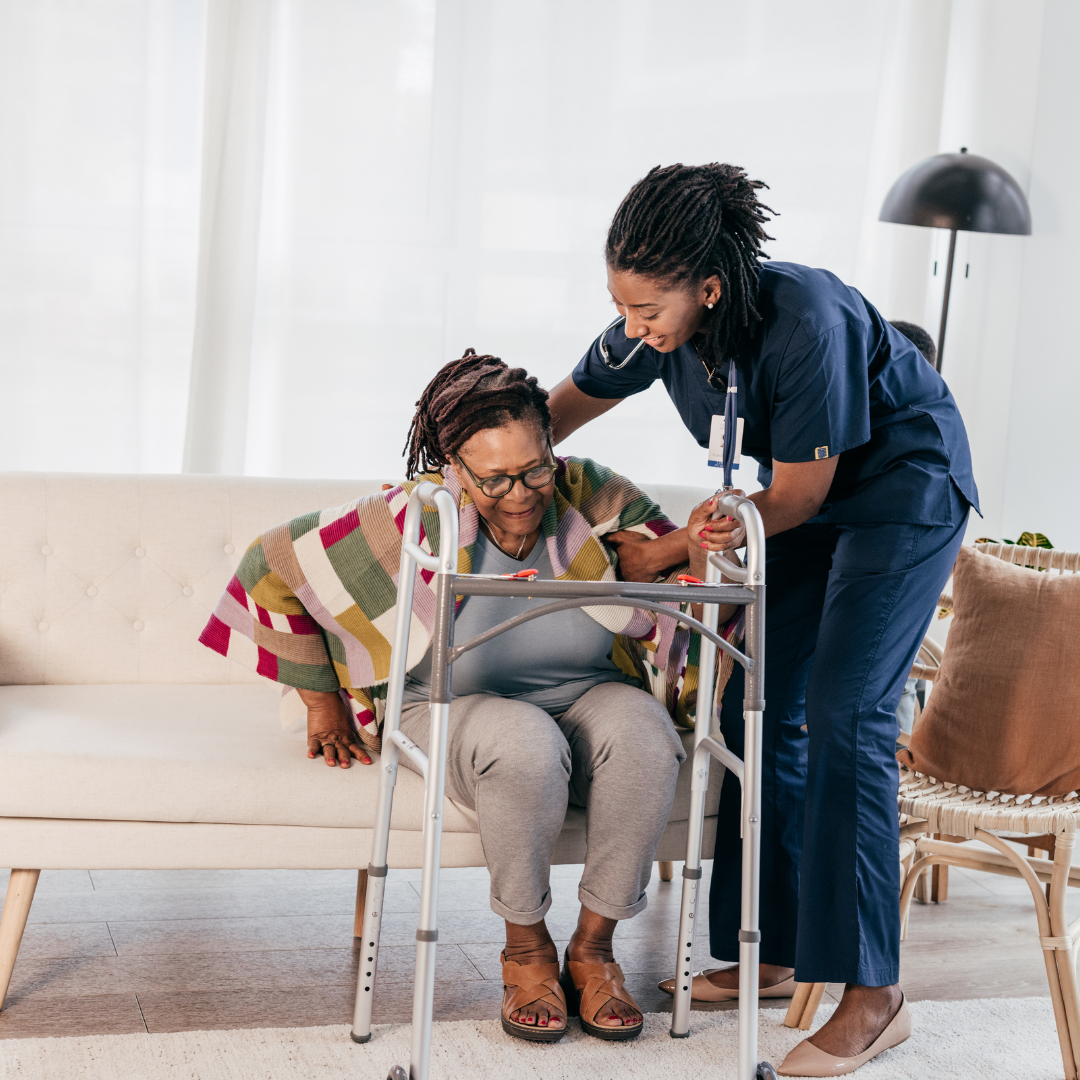Promoting Independence: The Significance of Personal and Companion Care
In the realm of caregiving, there's a profound emphasis on promoting independence – a fundamental aspect of personal and companion care that goes beyond mere assistance. This type of care is not about fostering dependency but rather empowering individuals to lead fulfilling lives on their own terms. In this article, we delve into the significance of personal and companion care in promoting independence and enhancing the quality of life for those in need.
Understanding Personal and Companion Care
Personal and companion care encompasses a range of services aimed at assisting individuals with daily activities while also providing emotional support, companionship, and a sense of empowerment. Whether it's helping with dressing, grooming, medication management, or simply providing a listening ear, personal and companion caregivers play a vital role in facilitating independence and well-being.

Empowering Independence
At the heart of personal and companion care is the principle of empowerment – the belief that individuals have the right to make choices, take control of their lives, and pursue their goals with confidence and dignity. Personal and companion caregivers work collaboratively with their clients to develop personalized care plans that honor their preferences, values, and aspirations. By providing support and encouragement, caregivers empower their clients to maintain their independence and autonomy, even in the face of challenges.
Tailored Support
Personal and companion care is not one-size-fits-all. Caregivers recognize that each individual has unique needs, abilities, and preferences, and they tailor their support accordingly. Whether it's adapting to changes in mobility, cognitive function, or health status, caregivers are adept at providing flexible and responsive care that promotes independence and enhances quality of life

Promoting Well-being
By fostering independence, personal and companion care contributes to the overall well-being of individuals in profound ways. When individuals feel empowered to take an active role in their own care, they experience a greater sense of control, purpose, and fulfillment. This, in turn, has positive ripple effects on their physical, emotional, and social health, leading to improved overall well-being and quality of life.
Supporting Aging in Place
For many individuals, personal and companion care enables them to age in place – to remain in the comfort and familiarity of their own homes for as long as possible. By providing assistance with
daily tasks and offering companionship and emotional support, caregivers facilitate independence and help individuals maintain their connection to their communities and support networks.
Aging in place is a concept cherished by many seniors who wish to remain in the comfort and familiarity of their own homes as they grow older. It's a testament to the desire for independence and autonomy, and personal and companion care plays a crucial role in making this aspiration a reality. Let's explore how personal and companion caregivers support aging in place by preserving independence and ensuring comfort.
First and foremost, personal and companion caregivers provide essential assistance with daily tasks that may become challenging for seniors as they age. This can include help with dressing, bathing, meal preparation, medication management, and household chores. By offering practical support, caregivers enable seniors to maintain their independence in their own homes, rather than relying on institutionalized care settings.
Moreover, personal and companion caregivers create a safe and supportive environment that allows seniors to thrive. They can help modify the home environment to make it more accessible and reduce fall risks, such as installing grab bars in the bathroom or removing trip hazards. By ensuring that the home is conducive to aging in place, caregivers promote independence and peace of mind for seniors and their families.
Beyond physical assistance, personal and companion caregivers also provide invaluable emotional support and companionship to seniors aging in place. They offer a listening ear, engage in meaningful conversations, and provide companionship during activities and outings. This social connection is vital for combating feelings of loneliness and isolation, promoting mental well-being, and enhancing overall quality of life.
Additionally, personal and companion caregivers play a key role in coordinating and managing medical care for seniors aging in place. They can accompany seniors to medical appointments, ensure medication adherence, and communicate with healthcare providers to advocate for their clients' needs. This comprehensive approach to care helps seniors maintain their health and well-being while aging in place.
Furthermore, personal and companion caregivers facilitate engagement in meaningful activities and hobbies that bring joy and fulfillment to seniors' lives. Whether it's participating in community events, pursuing artistic interests, or enjoying outdoor activities, caregivers support seniors in maintaining active and vibrant lifestyles. This sense of purpose and engagement is essential for promoting independence and overall well-being.
In conclusion, personal and companion care is instrumental in supporting aging in place by preserving independence, ensuring comfort, and promoting overall well-being for seniors. By offering practical assistance, emotional support, and companionship, caregivers enable seniors to maintain their autonomy and dignity while enjoying the familiar surroundings of home. As the desire for aging in place continues to grow, the role of personal and companion caregivers becomes increasingly vital in helping seniors live fulfilling lives in their own homes.
Conclusion
Personal and companion care plays a pivotal role in promoting independence and enhancing the quality of life for individuals in need. By empowering individuals to make choices, providing tailored support, and promoting overall well-being, caregivers enable their clients to live life on their own terms with dignity and autonomy. As we recognize the significance of personal and companion care in promoting independence, let us continue to prioritize the empowerment and well-being of those we serve, fostering a more inclusive and compassionate society for all.
If you or a loved one could benefit from the empowering support and personalized care provided by our compassionate caregivers, don't hesitate to reach out. Contact us today to learn more about our comprehensive care services and how we can help you or your loved one maintain independence and lead a fulfilling life. Let us be your partner in promoting independence, dignity, and well-being every step of the way.


